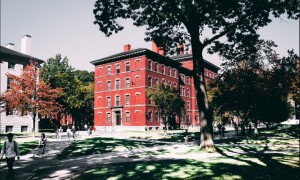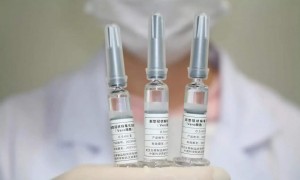导读:日前常州打掉“人造海蜇丝”黑作坊,经查,贾某等3人一年来生产超10吨假海蜇,非法获利10万余元。“人造海蜇丝”的生产原料化学品,长期食用会致骨质疏松、贫血甚至会变傻!

Police in eastern China have raided two fake jellyfish workshops, saying more than 10 tonnes is thought to have made its way into local food markets.
中国东部警方查获了两个“人造海蜇丝”黑作坊,据调查约有10多吨假海蜇丝流入了当地农贸市场。
Police said the fake jellyfish had been made by mixing chemicals, adding that checks showed high levels of aluminium.
警方称假海蜇丝是由化学品混合制成的,铝元素含量较高。
The syndicates made more than 170,000 yuan ($26,100) in profits in a year of production, they added.
他们说,生产这种假海蜇丝年获利17万元(2.61万美元)。
Jellyfish is very popular sliced and served as salad, particularly along China’s southern and eastern coasts.
海蜇丝一般会制作成一道美味的凉拌菜,特别在中国南部和东部沿海。
Huzhou municipal police in Zhejiang province, which is leading the investigation said they first found a workshop run by a Mr Yuan, who made and sold the fake jellyfish at a farmer’s market.
主导本次调查的浙江省湖州市警方称,他们最先在某农贸市场里发现,袁某的店铺在制作和销售人造海蜇丝。
Mr Yuan then led detectives to a bigger workshop in Changzhou city in neighbouring Jiangsu province run by a Mr Jia who had taught him the "art" of faking jellyfish. He was detained alongside other syndicate members. The arrests were made in late April, but police only made it public late last week
袁某告知,是从相邻的江苏省常州市的师父贾某那里学来的“技术”。贾某在常州开了一个更大的店面。警方在4月底就逮捕了贾某及其合伙人,但直到上周末才公布这个消息。
Mr Yuan told the investigators he made the jellyfish by mixing three chemicals - alginic acid, ammonium alum and calcium chloride anhydrous - according to an official release (in Chinese) by Huzhou police on social media platform WeChat. Officers say they found "excessive levels" of aluminium in the fake jellyfish - up to 800mg/kg, which is eight times of China’s own legal limit.
据湖州市警方在微信上发布的一份声明,袁某告诉调查者他是将三种化学原料——海藻酸钠、无水氯化钙、硫酸铝铵混合制成假海蜇丝。官员发现假海蜇丝中铝含量“严重超标”,高达800mg/KG,是中国法定标准的8倍。
The food and drug safety branch of Huzhou police said too much aluminium could result in bone and nerve damage, and potentially harm memory. They warned against pregnant women, children and the elderly consuming the substance.
湖州公安局食品和药品安全部门表示,摄入过量的铝可能会导致对骨骼和神经的损伤,对记忆力也有一定的危害。他们警告孕妇、儿童和老年人不可食用。
Although jellyfish can be poisonous they are considered something of a delicacy in China, as as both tasty and a good source of collagen.
尽管海蜇有毒,但在中国,因为口感很好又富含胶原蛋白,它们被视作一种美味。
Especially popular in the summer, jellyfish skin is sliced and served like a salad with various dressings.
特别是在夏天,海蜇被切成丝,加上其他佐料制成一道凉菜,非常受欢迎。
It appears as if the wild jellyfish supply simply cannot cope with the demand. Zhejiang’s Metropolitan Express paper has reported on jellyfish farms in the province. It quotes fish farmers saying that half-a-kilo of jellyfish takes 40 days to raise, with the wholesale price at about 30-40 yuan.
看来似乎野生海蜇供不应求,《浙江都市快报》报道了该省的海蜇养殖场。它引用渔民的话,1斤海蜇的养殖期约为40天,批发价在30-40元左右。
This cost is halved with artificial jellyfish and for obvious reasons, the production time is far less.
相比之下,假海蜇成本比养殖海蜇低近一半,且很显然,制作周期也不长。
The Huzhou police have issued guidance on how to spot the difference. Artificial jellyfish is tasteless with no smell and is tough to tear and has a texture similar to sellotape.
湖州警方发布了一个指南,告诉人们如何辨别海蜇。假海蜇丝无味道,无气味,用手轻轻拉扯不易扯断,质地类似透明胶带。
The real deal? Quite the opposite. It has a fishy smell, and is yellowish and colourful.
而真海蜇呢?正好相反,它闻上去有海腥味,看上去白中带黄。
This is not the first fake jellyfish bust
这已经不是曝光的第一起假海蜇案。
In November 2014, Huzhou police, again, caught three individuals selling fake jellyfish made from a similar chemical mixture.
2014年11月,还是湖州警方,抓获了出售假海蜇丝的三名个体户,也是用类似的化学原料制成。
In October 2013, police in central Hunan province broke another jellyfish syndicate.
2013年10月,中部湖南省警方破获了另一起假海蜇案。
That group is said to have made 40 tonnes of fake jellyfish, and the ringleader was sentenced to six months in jail.
据称这个制假集团制造了40余吨假海蜇丝。罪魁祸首被判处有期徒刑6个月。







